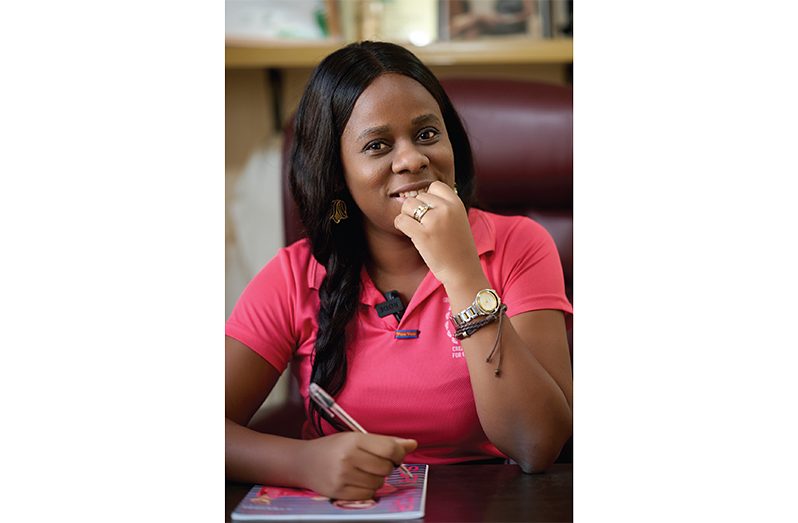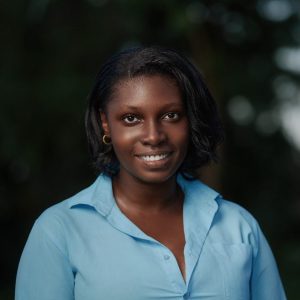Giving Hope Foundation and the role that the community plays in recovery
OCTOBER marks yet another year of cancer awareness, with the term ‘Pinktober’ gaining more traction with each passing year. This week, the Pepperpot Magazine sought to discuss the importance of community and support for those battling cancer. There are few people better qualified to tackle this topic than Dr. Latoya Gooding, medical oncologist and founder of The Giving Hope Foundation. Sparked by Dr. Gooding’s personal experience with her grandfather, who battled cancer, Giving Hope does more than raise awareness. It has become a family rather than just a foundation. Having helped hundreds since its inception, Dr. Gooding and her team are proof that the community plays a vital role in recovery.
Birth of the Giving Hope Foundation.
Dr. Latoya Gooding is a notable name in the field of oncology, with both her career expertise and foundation changing lives. Sharing about the founding of Giving Hope and the inspiration behind it, she shared, “The Giving Hope Foundation is a not-for-profit organisation that was established in October 2016, where it was brought about to the need of having an NGO that can raise awareness, that can do screening for persons out there because due to my professional work, I would have found that a lot of persons were being diagnosed in late stages of cancer, stages three and four.”
However, her medical journey began long before Giving Hope. As she shared, “But the whole need going way back is that, due to my grandfather’s diagnosis of prostate cancer, that actually pushed me into the field of oncology. And from there, I think the whole need for the foundation was realised.”
Although cancer awareness is one of its strongest pillars, Giving Hope does far more. With a team of skilled volunteers, Giving Hope has been a major player in both the diagnosis and recovery of hundreds. “Through the Giving Hope Foundation, we do screening for breast, cervix, and prostate cancer. We do awareness sessions where we go about and talk about the different types of cancers and the risk factors, signs, and symptoms of where you can access screening and treatment,” said Dr. Gooding.
An interest in and dedication to mental health is also pivotal to the work done by Giving Hope, offering psychological help in what most describe as the most difficult time in their lives. “We also address the mental health aspect of having a diagnosis of cancer, where we have a team of psychologists. We have our nutritionists on board who advise our patients along their diet plan,” said Dr. Gooding.
The power of support
Support is as important to cancer recovery as treatment. This is at least what Dr. Gooding says: “The importance of having a community, meaning the supporters, the family support, the friend support. It’s very important. I have seen persons who have been diagnosed at stage three, getting the best treatment, but because they lack family support, they become depressed, stressed out, and the cancer tends to progress.”
Giving Hope is among the largest support groups in Guyana and has become one of the largest support groups for anyone with any cancer. “We have our survivorship programme, where we have a network of cancer patients and cancer survivors that support each other throughout their journey.” Dr. Gooding further shared, “Through this network, we have a reach of over 50-plus cancer patients and survivors. And it’s mainly virtual, where we communicate, we reach out to each other.”
October is a busy month for the Giving Hope team, with a list of activities and initiatives geared towards cancer survivors. “Through the month of October, which is Breast Cancer Awareness Month, we have one month full of activities to celebrate the survivorship of our cancer patients. Not only breast, but it ranges from breast, prostate, cervical, colon, ovarian, across the board.”
Citing a few more activities that people can look forward to, Dr. Gooding shared, “We have our Look Good Feel Better, which is something that we would have started in 2017. It is an event where we pamper cancer patients, pamper cancer survivors. We have makeup, we do pedicure, manicure, we try to get donations of wigs so that they feel they come in one way, and when they leave, they feel different, they leave a bit more empowered.”
The highlight of the month, however, is the foundation gala, which normally garners massive support. “We always end our month with our gala. The gala is a fundraising event, so that we can raise funds to help do our events throughout the year.”
Early Detection and Education.
Early detection saves lives is Dr. Gooding’s mantra. “Early detection saves lives. That has been my message from 2015 to now, and I believe that sharing that message or that advice goes a long way.” She further added that “If you’re diagnosed at stage one, you have a 90% chance of surviving cancer. So it all comes down back to early detection.”
Throughout her career, Dr. Gooding has also grappled with misconceptions regarding cancer and cancer treatment, some of them more harmful than others, she says. “A misconception that I found a lot is that cancer spreads. If someone has cancer in your home, you don’t want to touch them, you don’t want to use the same utensils that they’re using, but cancer doesn’t spread to individuals.”
There are a few symptoms or early signs of cancer. According to Dr. Gooding, the most important thing to remember is to get screened; there are places for screening throughout the year. But paying keen attention to your body and family history is significant, and it’s never too early to start saving your life. “If someone has a family history like their mother or sister had breast cancer due to 1 or 2 genes being positive, they should start getting screened earlier. Even if your mom was diagnosed at 40, you can start at age 30 to be screened,” said Dr. Gooding.










